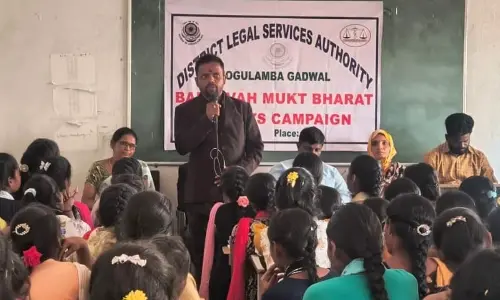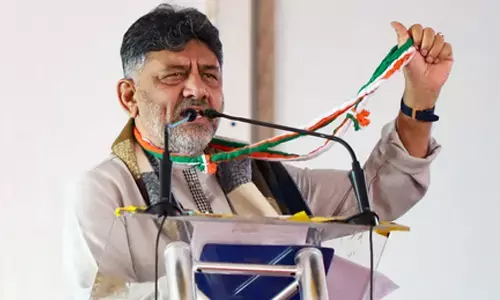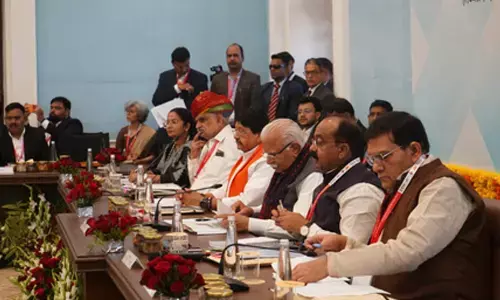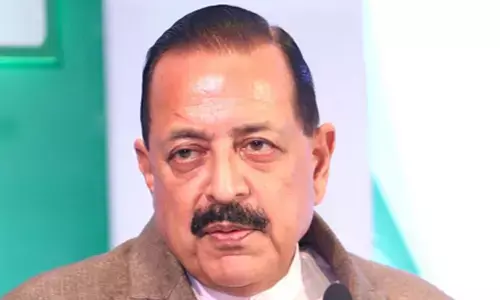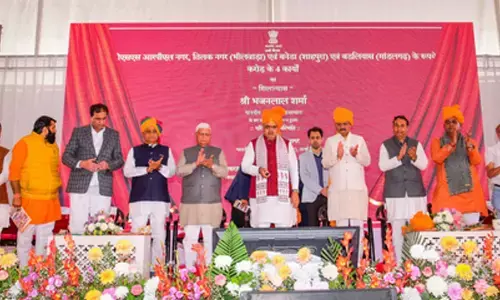‘Funding higher edn will benefit society’
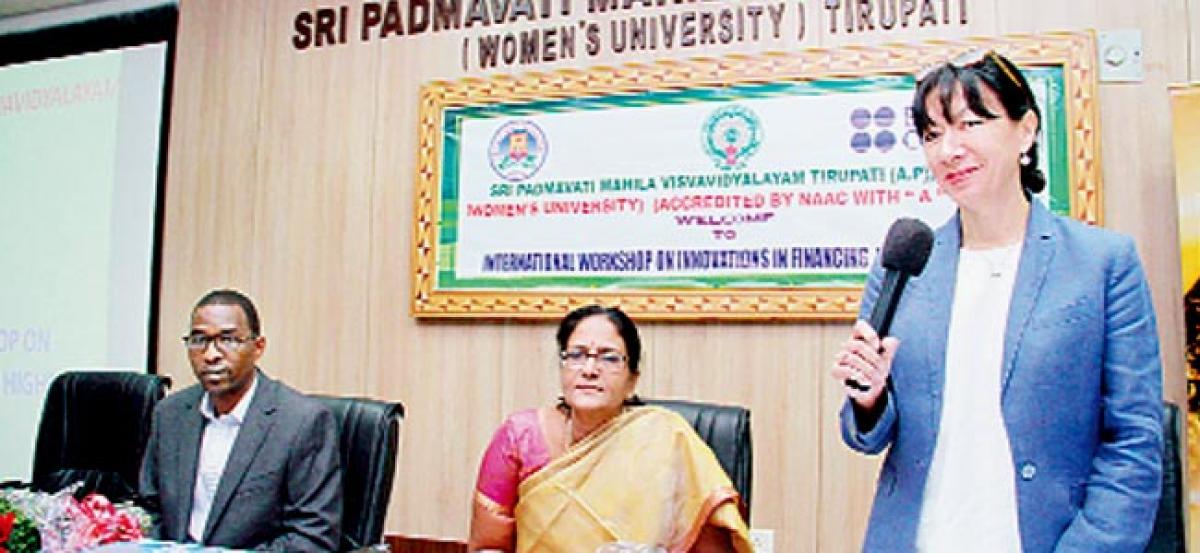
Speakers at an international workshop held here have discussed at length on as to who has to finance the higher education. The AP
- Speakers lay stress on governments extending financial support to educational institutions
- Rapid growth in private higher education sector in developing countries like India: NUEPA VC
Tirupati: Speakers at an international workshop held here have discussed at length on as to who has to finance the higher education. The AP government’s Higher Education department and Sri Padmavati Mahila Visvavidyalayam (SPMVV) in partnership with the British Council organised a one-day workshop on ‘Innovations in financing higher education’ here on Monday.
Several speakers focused on various examples of funding public institutions and private institutions. Prof Moses Oketch of University College of London delivering the key note address observed that the countries invested in higher education got better equity and they became much more tolerant. He said that the benefits of higher education are manifold. Governments are struggling to finance the higher education and India is no exception to this, he said. He posed questions on governments’ role in higher education sector and extending support to State universities. He asked as to what role should be played by private sector and skills needed for the questions that need solutions.
In her opening remarks, British Council South India Director Mei Kwei said that the British Council is developing connections and educational relationships with India for more than 70 years. Almost 1.6 lakh students have studied in UK during the last 10 years. Of them, 500 have studied last year on UK government’s university funded scholarships.The British Council has created over 1,000 research partnerships and 25,000 academic exchanges through UK-India education and research initiative.
Prof JBG Tilak, Vice-Chancellor of National University of Educational Planning and Administration (NUEPA), observed that there is rapid growth in private higher education sector. It is more privatised in developing countries like India than in any advanced countries. But, private higher educational institutions developed upon State support, he added. It leads to public pauperisation and private enrichment. Francisco Marmolejo, who is working as a Lead Education Specialist in the World Bank, said that who has to finance the higher education is a global question. Is it the society represented by people’s representatives or the individual or the institution? He concluded that it is difficult to get the uniform answer.
The Vice-Chancellors of different universalities shared their experiences. The broad areas they identified to get resources are through distance education, enrolment of international students, consultancy services, industry linkage, establishing collaborations and entrepreneurship courses. They opined that government has to increase the allocation for higher education which is only two per cent of GDP now. SPMVV Vice-Chancellor Prof V Durga Bhavani presided the opening session whereas the Rector Prof V Uma delivered the closing remarks. The faculty of SPMVV and other dignitaries participated.











